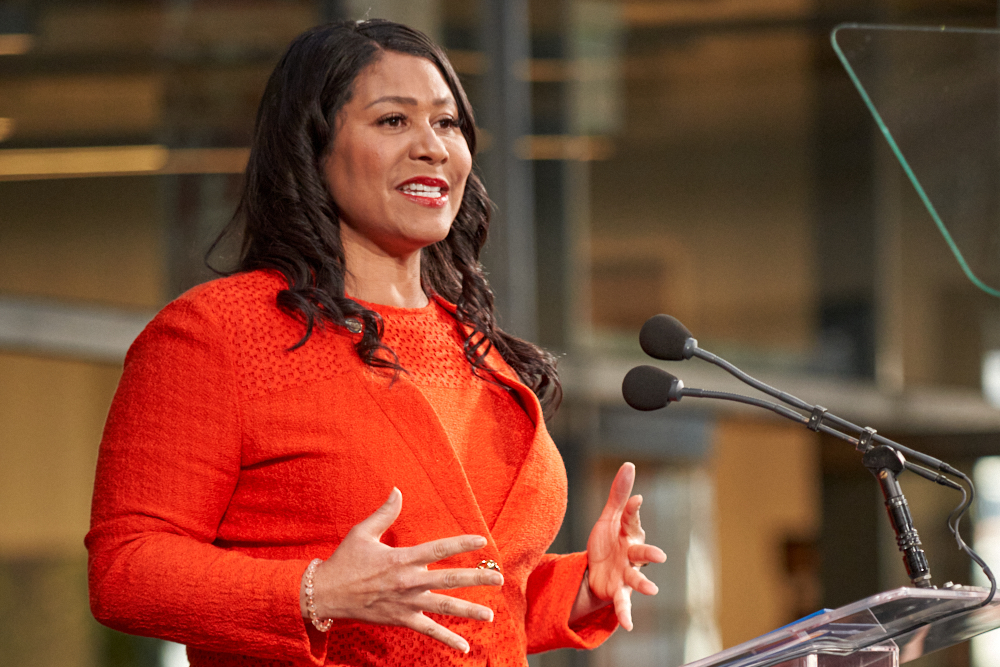When I first read about Mayor London Breed’s new police ballot initiative, it sounded like a classic political play: An unpopular mayor puts something on the ballot that sounds good—who is against “public safety?”—but really doesn’t amount to much.
It would give the mayor a wedge issue to use against candidates for supervisors who she doesn’t like (which is also what her housing measure is about).
Then I read the actual language.
The measure, which will be on the March ballot, would have serious consequences for police reform, privacy, and civilian oversight of law enforcement.

Among other things, it would cut the Police Commission out of decisions on surveillance cameras, would give much more power to the chief, and would prevent the Board of Supes from weighing in on new police technology until that technology, which could include anything from spy cameras to drones to killer robots, has already been deployed for a year.
It would also make more difficult any new Police Commission policy that would limit use of force and would “streamline” (Breed loves that word) the process of holding officers accountable for misusing their power.
I am reminded of Care Not Cash, the anti-homeless measure that Gavin Newsom used to get elected mayor, which has only meant more homelessness and more crime.
Breed is running out of people to blame for homelessness and crime. Her candidate is the district attorney. She appoints the police chief. So now she’s going after the Police Commission (which is controlled by her own appointees), and she and her allies are going to go after local judges.
Help us save local journalism!
Every tax-deductible donation helps us grow to cover the issues that mean the most to our community. Become a 48 Hills Hero and support the only daily progressive news source in the Bay Area.
Let’s look at what this measure actually does.
It creates a “standard community engagement process,” which requires 90 days of meetings (and delays) before the commission can do anything that would impact policing—requiring, say, a ban on pretext stops. Then the commission would have to “consider the burdens on staff,” which means, for example, requiring cops to report accurately the race of people they stop, before enacting policies.
It would relieve officers of the responsibility to file a Use of Force report unless the officer reports (on their own discretion) that the incident “resulted in a physical injury,” which isn’t defined, or the cop pulled a gun.
That alone is huge: It would eliminate many, perhaps most Use of Force reports, which allow the community (and the Department of Police Accountability, and even the department’s internal affairs folks) from preparing early warning reports on cops who routinely use excessive force.
It would eliminate all Police Commission hearings on new spy cameras. The decision when and where to put cameras that would record everything people did in a part of the city would be entirely up to the chief of police.
It would specifically ban the supervisors from blocking any new technology until the department had been using it for a year. In other words: Drones. Killer robots. AI surveillance. Stuff that I can’t even imagine yet. The cops get to use it, without any oversight, for a year.
But this will be framed as “public safety,” and Breed will try to say that anyone who opposes it is against the cops, and this will be part of her effort to overcome very bad poll numbers and win re-election.
In this case, it’s more than a game. Lives are at stake.




